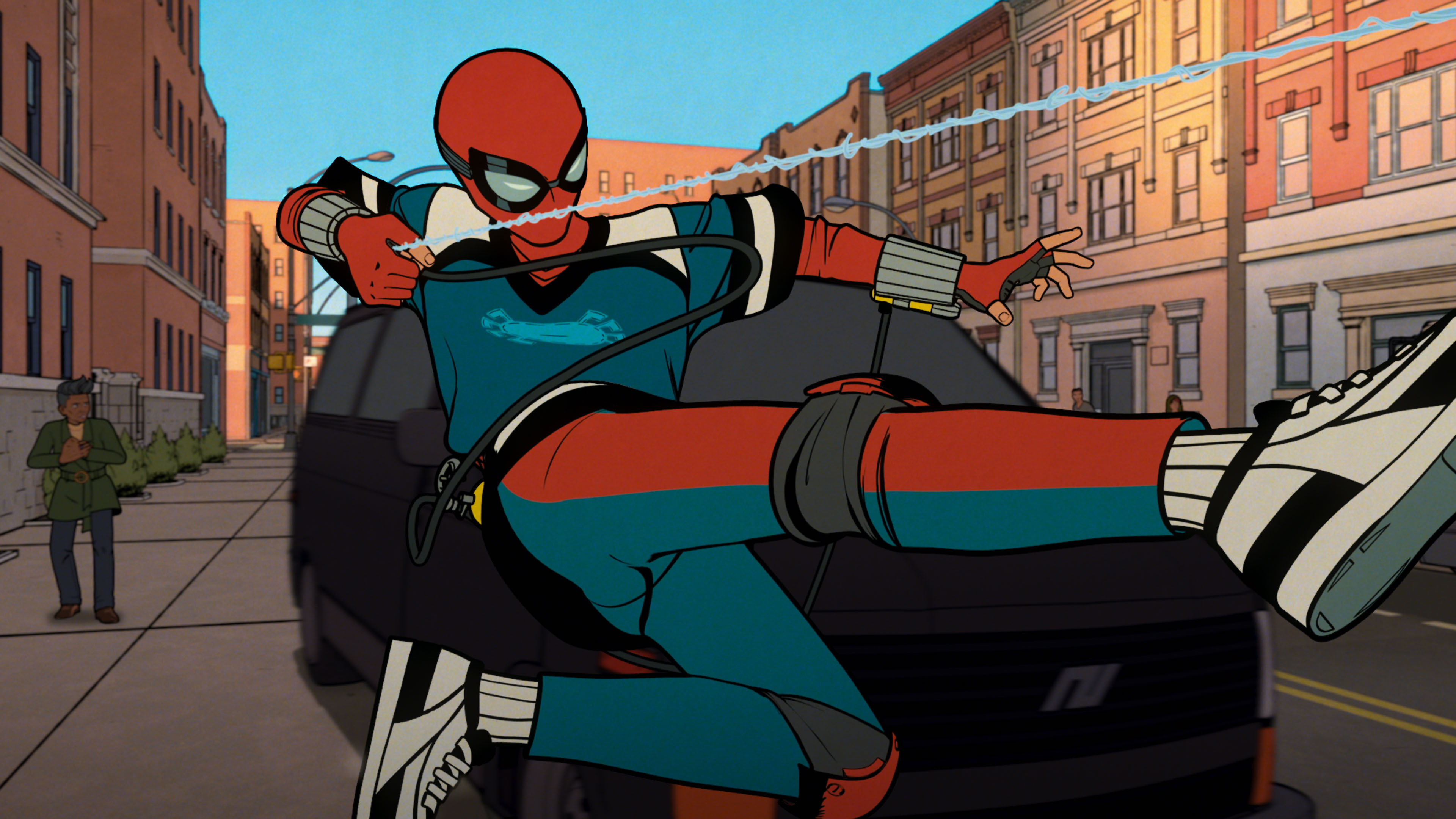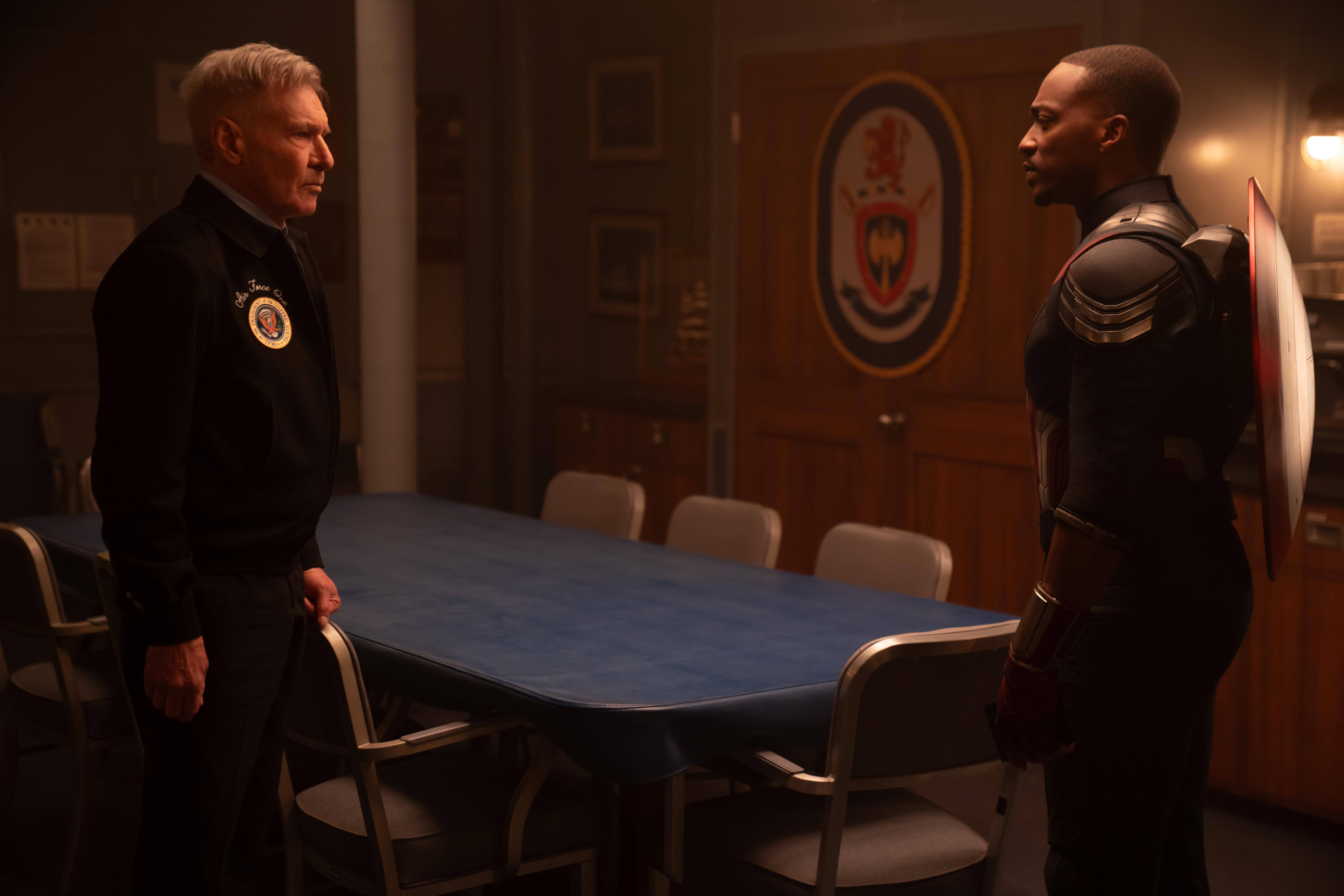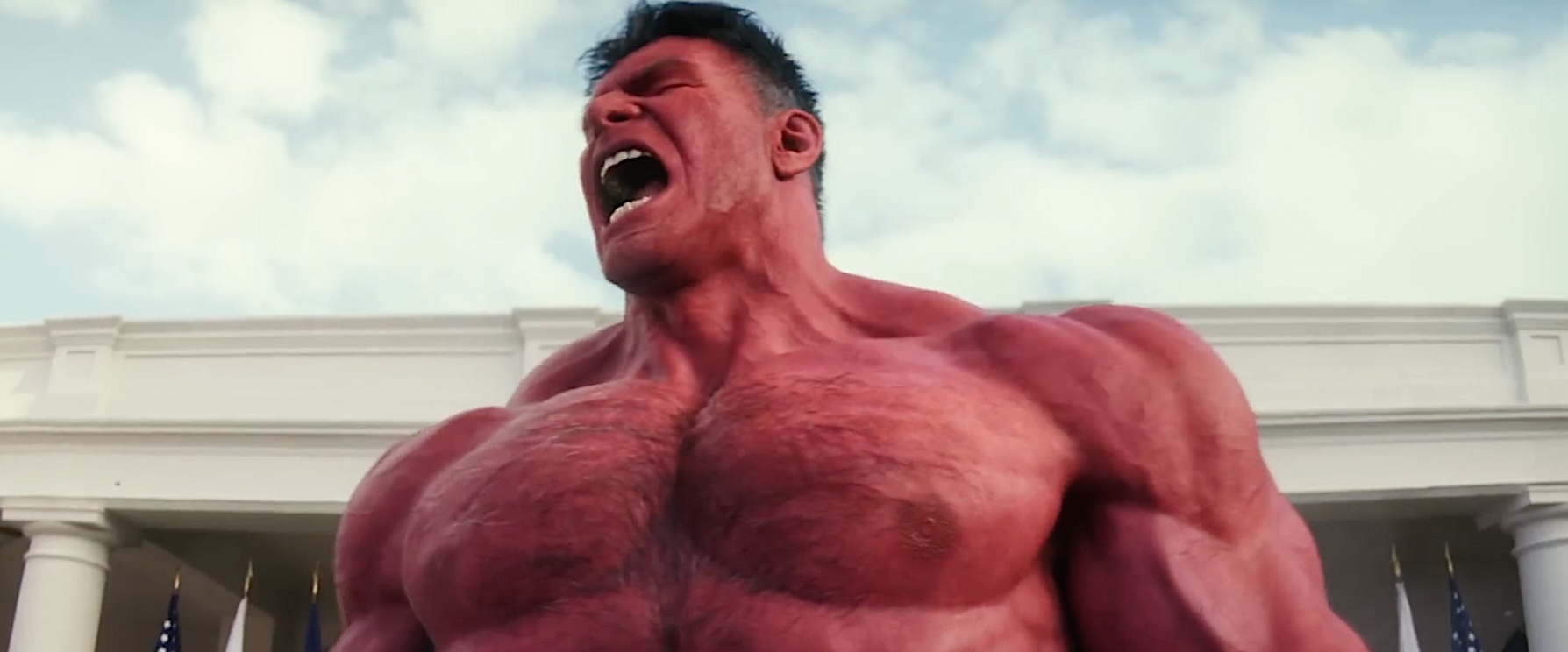There are a thousand densely layered visual and verbal jokes in Greta Gerwig and Noah Baumbach’s script for Barbie, but one in particular stands out, because it’s a light gag with such massive story implications that it feels like an ethos. When Aaron (Connor Swindells), a low-level Mattel employee, finds out “Stereotypical Barbie” (Margot Robbie) has escaped from the fantasy world of Barbieland and entered Reality, he immediately alerts Mattel’s CEO (Will Ferrell) and the corporation’s board of directors. But then Aaron takes a moment to ponder the ontology of the world he lives in.
“So… is Barbieland an alternate reality?” He starts to ask. “Or is it like a place where your imagination—” In absolute unison, the entire board cuts him off with a resounding “YES!”
The message is clear: Do not think about the underpinnings of this world. Just stop asking questions right now. Further, because of the way Aaron gets cut off with a yes before he’s even done listing the possibilities for what Barbieland might be or might mean, there’s an extra layer to it all: a suggestion that sure, all theories about Barbieland are equally valid, and equally meaningless. And because the entire Mattel board delivers that verdict in emphatic chorus, there’s an extra hint of impatience and authority to it all, an air that says We’ve addressed this question a thousand times already, we’re tired of it, and we’ve come to a consensus. We just want you to toe the party line on this and move on.
:no_upscale()/cdn.vox-cdn.com/uploads/chorus_asset/file/24816447/rev_1_BAR_00822_High_Res_JPEG.jpeg)
It’s a funny moment both because it’s so abrupt, and because there’s so much nuance to the way Gerwig shoots and presents it. But it’s also enjoyable in a way that’s pretty rare for movies, because it’s a friendly, jokey invitation to just accept the metaphor, and not worry about the details of Barbie’s cosmic construction at all.
A lot of us like to think about the details in movies. Some of us can’t help it. For people who’ve made a life out of analyzing and discussing film, being told “Just turn your brain off and enjoy it!” or “Don’t you know how to have fun?” is annoying and pointless. Thinking about movies is fun! If it wasn’t, why would there be so many online fora dedicated to discussing and decoding pop culture? Why would wingnut ideas like the Pixar Universe Theory get so much viral traction, as fans play around with ridiculous ideas about their favorite movies or shows and share them around for an audience of like-minded armchair analysts?
That said, sometimes we can all get too obsessive about the details, in ways that can distract from a story. Just look at the rise of the Reddit Detectives, the kind of people who band together on Reddit to share microanalysis and mysteries in pop culture, and pick them apart. The Reddit Detective is a concept, not a specific circle of people — a way of summing up the type of online sleuths who obsessively pored over the evidence in the Serial podcast, minutely decoded the online bread crumbs laid down for fans of Westworld as part of that show’s viral marketing, or examined every possible hint about who Jon Snow’s mother might be on Game of Thrones.
This kind of online sleuth — a detail-focused, collaborative fan, always racing to be the first to notice and post about some Easter egg or secret connection — has done a lot of helpful work on behalf of the rest of us, like mapping every story path and possible ending in Black Mirror: Bandersnatch, or in a less pop-culture-focused sphere, tracking down evidence of malicious moderation fraud on Reddit. But the dark side of that analytical urge is the drive to pick everything apart and root every secret out of every story — like, say, figuring out every big twist in Westworld well before it happened. This kind of analysis also takes every plot point to its logical extreme.
:no_upscale()/cdn.vox-cdn.com/uploads/chorus_asset/file/24795838/rev_1_BARBIE_TP_0002_High_Res_JPEG.jpeg)
Barbie invites and defangs that impulse by announcing that yes, all possible theories about the nature and implications of Barbieland are true, and you’re allowed to spin out any options you want. Does the existence of Barbieland suggest that every other popular toy or character that figures heavily in kids’ imaginations has its own actual, tangible alternate-reality universe? Sure, why not? Is there a Sonicland, a literal Mario World, a Legoland where the action of The Lego Movie actually took place? Yup, that’s fine with us. But wait! Gasp! If Barbies can just stroll out of Barbieland into Reality, could Pikachu and Mewtwo do that as well, leading to an actual Detective Pikachu situation? We’ll allow it. Could all these IPs collide in one massive real-world crossover? If you can imagine that, go ahead! It’s as real as anything else in this movie.
Barbie’s “Sure, any theory goes” attitude gives us all permission to dream, while absolving itself of any idea we come up with. But more importantly, the Mattel board is telling Aaron (and the rest of us) that figuring out those details isn’t an important aspect of this movie. Does it make sense that, when Ken claims Barbie’s DreamHouse and turns it into Ken’s Mojo Dojo Casa House, that house suddenly and instantly manifests as a real-world product and starts “flying off the shelves”? If Barbieland characters are just reflections of real-world toys currently being played with, why are there so many discontinued dolls and fashions still represented in Barbieland? Why is there only one Allan?
Did any of these questions matter in the writing of Barbie? As Roger Rabbit would put it, “Only when it was funny.” There isn’t some Brief History of Time-level manual to the mathematical rules of Barbieland out there somewhere, covering all possibilities — you’re allowed to make up your own rules.
Gerwig and Baumbach handle Barbie’s weirder fantasy elements with exactly as much lightness and momentum as the movie needs. They don’t waste time on boring disbelief and debate. Will Ferrell as the Mattel CEO points out that Barbie characters have leaked into Reality before — so there’s no need to spend a lot of energy on a bunch of characters wondering how Barbieland could be real, picking through the metaphysical implications, or slowing the movie down by complaining about its fundamental premise. They can just move past that, and get on with the humor and the trenchant analysis of gender relationships.
:no_upscale()/cdn.vox-cdn.com/uploads/chorus_asset/file/24795632/Barbieland_Dance.jpeg)
And when disaffected teenager Sasha (Ariana Greenblatt) and her friends are confronted with a living Barbie, they don’t spend a dreary chunk of the movie asking how she could possibly be real, or what it means that she exists — they just lay into her for all the negativity she represents. It’s easy enough to argue that in that moment, they don’t believe she’s the actual avatar of Barbie the doll, that they just think she’s a perky bimbo styling herself after the toy. But the movie doesn’t bother splitting those hairs. You can read the scene either way, and it works fine. Are they talking to the doll, or a human woman who admires the doll? Yes, says the Mattel board, in unison.
This kind of breezy hand-waving doesn’t work for every movie — in serious horror, science fiction, and fantasy, it’s much more important to have some sense of what the rules are, because there are no clear story stakes otherwise. But for a comedy that’s focused entirely on other details — exactly what the accoutrements of a Ken-dom macho man are, or why Barbie floats everywhere in Barbieland — pinning down the scientific details of the world just doesn’t matter.
Barbie takes exactly the right path through its fantasy elements by breezing past the aspects of analysis that would make the movie more real than it needs to be, while giving viewers enthusiastic consent to fill in the rest any way they want. Is this a movie for the Neil deGrasse Tyson-style nitpickers of the world? No. Is it a movie that asks the audience to imagine who they want to be and what kind of world they want to live in, while completing the metaphor by leaving everything else in the movie up to their imaginations? A hearty, resounding, choral Yes.








